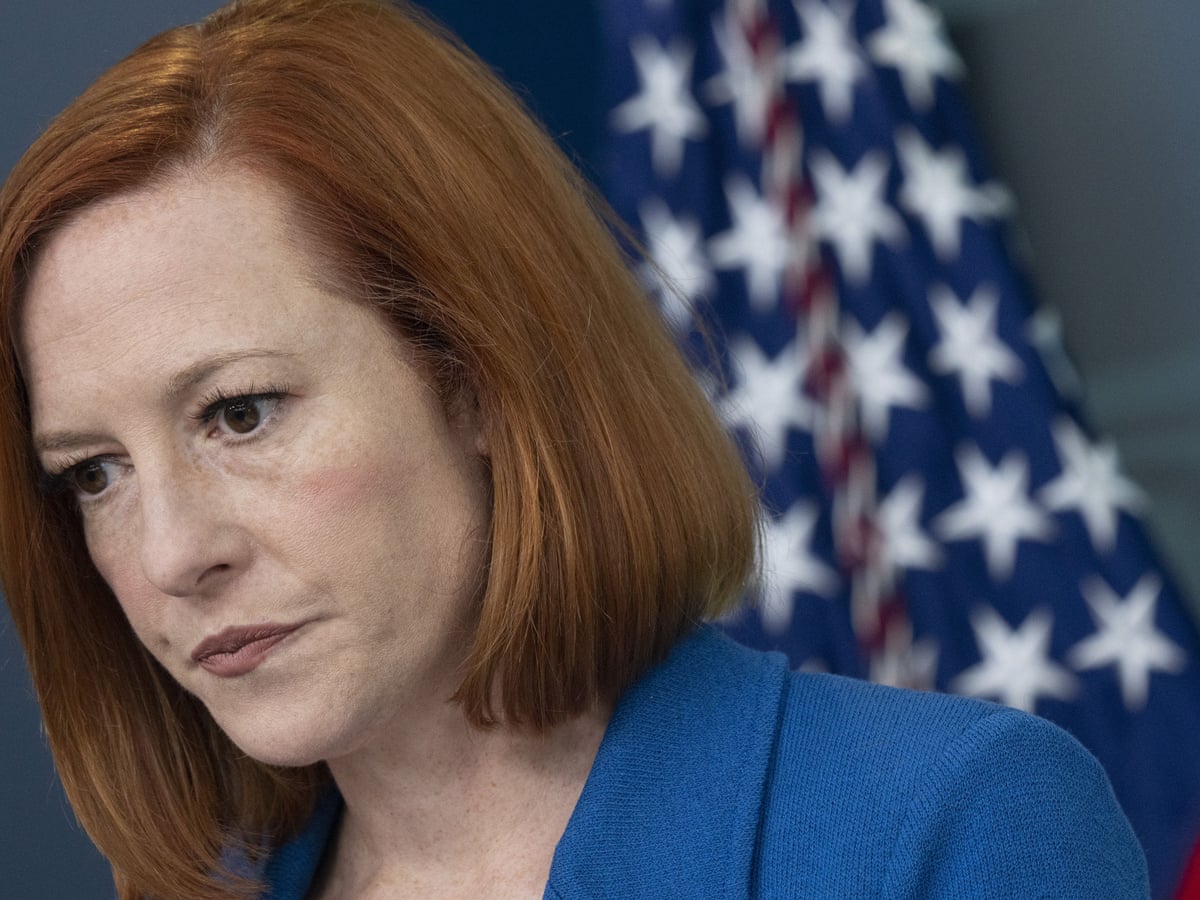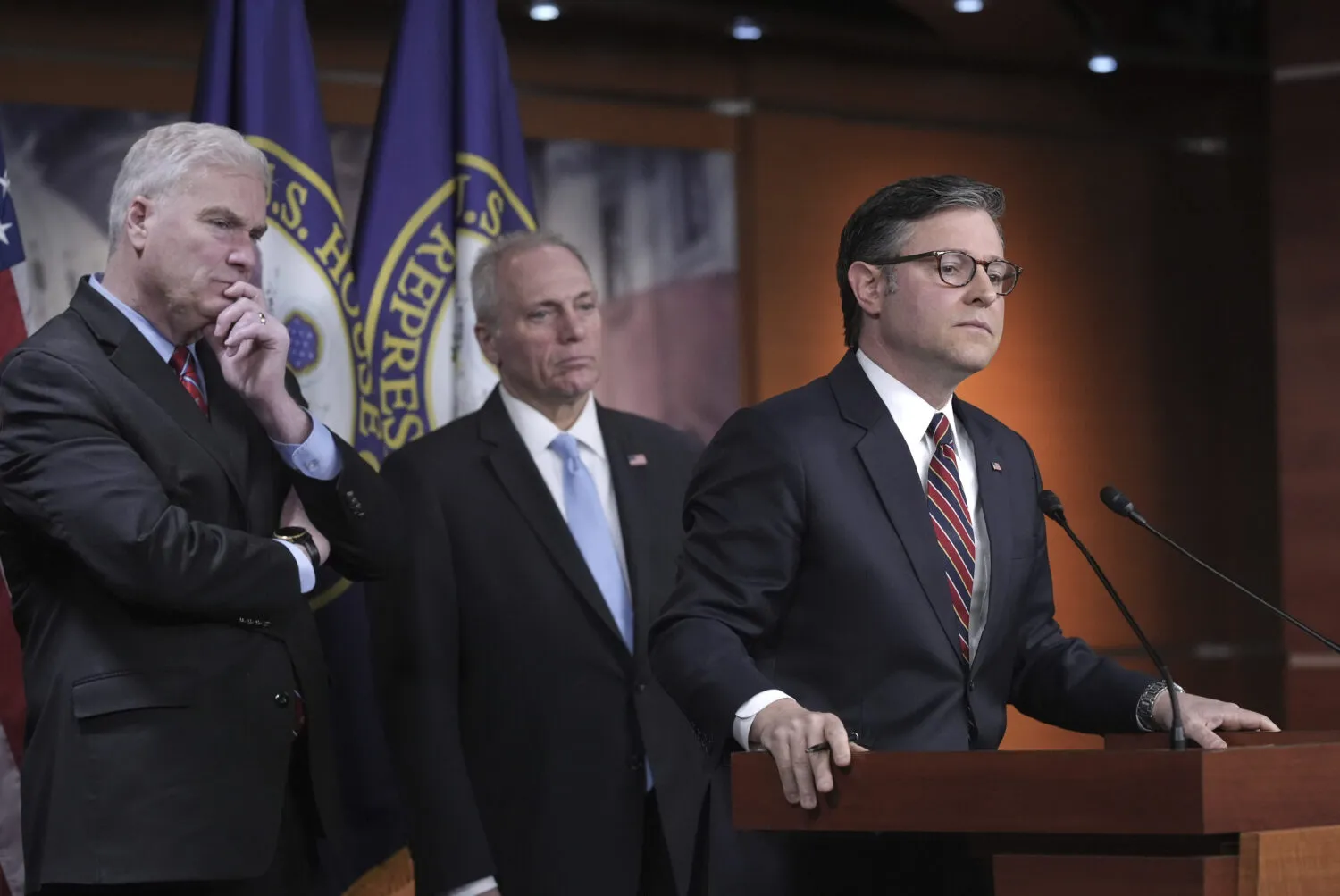Former White House press secretary Jen Psaki has come forward to deny the idea that President Biden’s inner circle orchestrated a deliberate cover-up of his mental decline leading up to the 2024 election, though she admits that the person seen on the debate stage last year was unrecognizable compared to the man she once worked beside.
Psaki, now an MSNBC host, made her remarks during an episode of the “Mixed Signals” podcast by Semafor, where she was pressed on whether there had been any concealment by the Biden administration or the press regarding the president’s mental fitness.
Psaki, who served as Biden’s chief spokesperson from 2021 to 2022, pushed back on the use of the word “cover-up,” calling it a “loaded phrase” while emphasizing that her experience did not reflect anything close to what the public witnessed in Biden’s debate against Donald Trump in June 2024.
"I left in May of 2022, just for the facts here, and I have seen Biden once since then, when I took my daughter to the holiday party this last December, after he had lost, and so I hadn’t seen him in person during that period of time," she said. She insisted, "I never saw that person, not a single time — and I was in the Oval Office every day — that was on that debate stage."
In the now-infamous debate that shocked even loyal Democrats, Biden appeared frail, confused, and unable to complete sentences. The performance became the turning point that derailed his reelection campaign and ultimately led to his withdrawal from the race.
Psaki said she was stunned by his deterioration, remarking that, "I’m not a doctor. Aging happens quite quickly."
Podcast host Ben Smith pushed Psaki further, asking whether she had heard from her former colleagues about any concerted effort to conceal Biden’s condition from the public or if there had been a collective sense of denial among the team. Psaki remained careful with her words, refusing to label the situation a “cover-up,” but she acknowledged that the term carries heavy political implications.
"Cover-up is often like a crime, right? When people use that, they say it’s worse than the crime. People use that term as they relate to Watergate or the covering up or not sharing public information about a war," she explained. “I think it’s a bit of a dangerous term.”
Despite her reluctance to accuse anyone directly, Psaki admitted that she was not in close communication with many former staffers involved in the more recent chapters of Biden’s presidency.
"I don’t know," she said when asked about what transpired within the White House in 2023 and 2024. "I have not talked to them, any of the people in these books about this particular question."
She did, however, defend the character of many of her former colleagues, saying they were "good human beings." Psaki added, "I like to think that, no, they would not be part of an active ‘let’s hide from the public what we see happening privately,’ and I don’t know the facts of what was happening."
Still, her comments do little to silence the mounting questions surrounding the Biden administration’s transparency during a critical election year. The June debate debacle triggered a cascade of media reports, political commentary, and insider leaks painting a picture of a president surrounded by aides who either failed to confront reality or actively tried to prevent the public from seeing it.
The debate's fallout caused immense damage to Biden’s standing in the polls, prompting donors to panic and forcing Democratic Party leaders into emergency meetings to discuss a potential replacement.
In the days that followed, anonymous sources from within the Democratic establishment began leaking details of closed-door discussions, alleging that some White House staffers and campaign aides were well aware of Biden’s cognitive struggles but chose to shield him from unscripted moments or rigorous public appearances.
Aides were accused of tightly managing his schedule, limiting spontaneous interactions with journalists, and even scripting brief remarks to prevent verbal missteps. Critics began calling this bubble-wrapping strategy deceptive and dishonest.

Although Psaki was no longer in the White House during this period, her attempt to distance herself from the events and her insistence on the good intentions of her former colleagues suggest an internal divide within the Democratic Party over how to handle the legacy of the Biden presidency.
Some Democrats have doubled down on their defense of the former president, blaming the media for exaggerating his decline and framing the backlash as an ageist attack. Others, however, are demanding accountability, especially from those who may have knowingly withheld crucial information from voters during a critical election cycle.
Books published in the aftermath of Biden’s withdrawal from the race have added fuel to the controversy. Several insiders, including former advisors and campaign staff, have provided anonymous or attributed accounts that portray a White House in denial, where loyalty and optics often overrode transparency.
These accounts describe how alarming signs of Biden’s mental decline — including forgetfulness, confusion, and frequent fatigue — were brushed aside as normal aging or dismissed outright. Even among those sympathetic to Biden’s decades of public service, many now question whether his inner circle served the nation or merely protected his image.
Jen Psaki’s remarks reflect the tension between defending an administration she was once proud to represent and grappling with the reality that something profoundly unsettling occurred behind the scenes. Her reluctance to use the word “cover-up” is telling, as it signals a fear of triggering deeper investigations or legal scrutiny, but her comments also leave open the door to further revelations.
The fact that she explicitly said, "I don’t know the facts of what was happening," may suggest that even senior figures were kept out of the loop or chose not to pry too deeply.

For now, the debate over Biden’s mental health and whether Americans were misled remains unresolved. What is clear is that the images from the 2024 debate cannot be undone, and their political consequences are still being felt.
As Democrats prepare for a contentious general election with a new nominee, the lingering suspicion that the party allowed a mentally unfit candidate to remain on the ballot for too long could haunt them in the months ahead. The trust between voters and their leaders — already fragile — may have suffered lasting damage.





